Drug Addiction Treatment in Cambridge
Cambridge drug rehab for in-patient and out-patient drug detox and alcohol treatment. Addiction and chemical dependency recovery program near Cambridge MA. Drug and Alcohol Rehabilitation techniques used in our Middlesex rehab and detox centers near Cambridge. Programs for drug and alcohol abuse that include inpatient and outpatient recovery for addiction are explained as well as the benefits and drawbacks of both. Many health insurance providers will pay for alcohol and drug rehab. Call us to find out what options are available for you.
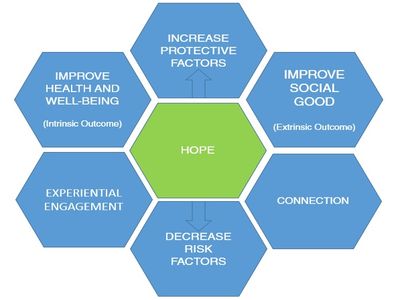
Mental Dependency – What Is Psychological Reliance?
The term psychology is generally indicated to describe behavior procedures that relate to the emotions or the mind. The term emotional dependence is typically suggested to explain the psychological as well as mental procedures that are related to the advancement of, and also recuperation from, a compound use condition or drug addiction. Nevertheless, there could be no total separation of emotion and also cognition from physiology. To indicate that “psychological dependence” is not as serious as “physical dependency” represents a myth; in reality, these 2 classifications do not exist as mutually unique classifications and consequently could not be contrasted as if they exist individually from each other.
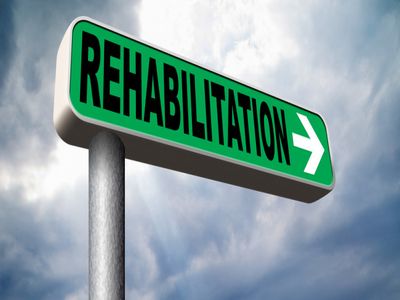
Compounds related to Mental Reliance
The basic observation right here is that all compounds of misuse are related to both psychological and physical aspects of dependence; nevertheless, several resources separate the facets of the advancement of a compound use condition and also the withdrawal procedure right into compounds that are related to withdrawal symptoms that are mainly psychological in nature. Normally, these compounds include:
A lot of uppers, including cocaine and Ritalin
Many hallucinogenic medicines, such as LSD
Cannabis products (although there is mounting proof that there might be a substantial physical procedure of withdrawal that takes place in chronic users of marijuana products).
Several inhalant products.
Many psychotropic drugs, such as antidepressant medicines.
Treat of mental reliance
One essential distinction that can be made pertaining to the difference in between medications that are considered to lead to physical versus emotional dependency is that the withdrawal procedure from a few of the medications that are thought about to be strong prospects for physical reliance, such as alcohol, benzodiazepines, and barbiturates, can lead to the advancement of potentially deadly seizures. Nonetheless, this condition does not generally occur with withdrawal from opiate medicines, which are additionally taken into consideration to be very physically addicting. The healing procedure for people that have established compound usage disorders to these substances need to be purely kept an eye on by a physician or psychoanalyst that concentrates on dependency medicine to identify any prospective seizure activity as well as right away address it.
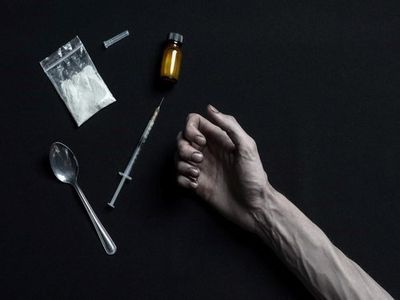
Options for Treatment in Cambridge
Medications
Several drugs have been discovered to be efficient in dealing with addiction to opioids, alcohol, or pure nicotine in grownups, although none of these medicines have actually been accepted by the FDA to deal with teenagers. Most of the times, only initial proof exists for the effectiveness as well as security of these drugs in individuals under 18, and also there is no evidence on the neurobiological influence of these drugs on the developing brain. Regardless of the relative absence of proof, some wellness care providers do make use of medications “off-label” when treating teens (especially older teens) who are addicted to opioids, pure nicotine, or (less typically) alcohol. Newer substances continuously be studied for potentially treating material use conditions in grownups and adolescents, however none aside from those listed here have revealed conclusive results.
Note that there are currently no FDA-approved medications to treat addiction to cannabis, drug, or methamphetamine in any type of age group.
Buprenorphine decreases or eliminates opioid withdrawal symptoms, including medication cravings, without generating the “high” or harmful adverse effects of heroin and also other opioids. It does this by both activating and blocking opioid receptors in the brain (i.e., it is what is called a partial opioid agonist).

Methadone additionally avoids withdrawal signs and symptoms and decreases desire in opioid-addicted individuals by activating opioid receptors in the mind (i.e., a full opioid agonist). It has a long history of use in treatment of opioid dependency in grownups and is readily available in specially qualified methadone therapy programs. In choose cases and also in some States, opioid-dependent teens in between the ages of 16 as well as 18 might be eligible for methadone therapy.
Residential Drug Treatment in Cambridge
Sixty-two percent of those who had specialist assistance in treating their dependency remained in recovery for three years after therapy, contrasted to just 43 percent of those who really did not obtain therapy. This shows that getting professional treatment is essential to reaching the ideal outcome.
Residential Cambridge drug rehab in particular is commonly much more helpful since it calls for that the individual stay in treatment for the quantity of time needed to influence modification.
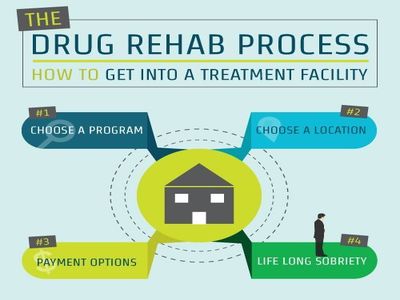
In the NIDA short article it is stated that an essential aspect of medicine addiction therapy is staying in therapy long enough to complete the various components of the program, due to the fact that this allows people to arise with the highest level of confidence in their freshly discovered abilities and also devices for staying in recuperation. Due to this, each of the components of a high-grade treatment program works best when it is made to assist individuals get through the entire therapy process.
Residential rehab gives 24-hour treatment in a setting where the focus is helping individuals achieve as well as maintain healing from drug addiction. As a result of this, these programs are able to supply a breadth of solutions that are more likely in order to help customers establish capabilities and tools to remain in healing well after leaving the program. These include:
Medically supported detoxification and withdrawal, if needed.
Medically supported upkeep treatment, if required.
Private therapies, such as Cognitive Behavioral Therapy.
Family members or pairs therapy.
Structure abilities and also tools that are essential for life blog post treatment.
Follow-up care after the formalized program ends.
Outpatient Rehab
Outpatient rehab allows clients to live at home and also join therapy at an outpatient facility during the daytime. This kind of program manages people much more freedom in treatment, offering clients the capacity to keep a task and stay on top of day-to-day obligations in your home. Those simply starting outpatient care might need daily sessions with a therapist or professional personnel, while those additional along in recovery (or with much less serious dependencies) may succeed with part-time sessions once or twice weekly.
Outpatient programs typically last anywhere from one to 3 months, as this is the window of time where those in healing are most vulnerable to relapse. The size of time a client invests in outpatient treatment relies on their development in recuperation, which considers their mental security as well as physical health.
An outpatient drug rehabilitation program offers drug and alcohol treatment sessions that can be set up throughout various times throughout the week. This schedule permits individuals to continue with their regular duties as well as continue living in the house, yet they are required to check out treatment at their designated times for therapy and also drugs.
Recovery
Recuperation is an objective of alcohol treatment, and also recovery-oriented systems of treatment are being developed to support that goal. People that are “in recuperation” recognize just what it implies to them as well as exactly how vital it remains in their lives. They need no official definition, but also for the general public and also those that research study, review, and develop policies concerning addiction, recovery is a principle that can sometimes seem vague.
Basically, healing is a complicated and vibrant procedure encompassing all the favorable advantages to physical, psychological and social wellness that can occur when individuals with an addiction to alcohol or medicines, or their relative, get the aid they require.
Therapy
Counseling is a crucial part of substance abuse therapy for many individuals. Cognitive behavior modification, family members counseling, and also various other treatment strategies can help people recouping from opioid dependency keep tidy.
Twelve-step Programs
The 12-Step philosophy pioneered by Alcoholics Anonymous is made use of by regarding 74 percent of therapy. Numerous addiction treatment programs supply choices to 12-Step methodology for those that like an even more secular structure for therapy.
SMART Recuperation
SMART Healing is an abstinence-based, not-for-profit company with a sensible self-help program for people having issues with drinking as well as using. It includes many ideas and also methods to help you change your life from one that is suicidal and dissatisfied to one that is constructive and rewarding. SMART Healing is not a spin-off of Twelve step programs. No person will certainly label you an “alcoholic”, an “addict” or “unhealthy” nor “helpless”, as well as if you do not count on a religious beliefs or spirituality, that’s great, too. We educate sound judgment self-help treatments developed to empower you to stay away as well as to develop a more favorable lifestyle. When you do well at following our technique, you may finish from the program, or you could stay around to help others.
Client-centered methods
In client-centered drug abuse therapy, you could assist decided things about your medication dependency treatment strategy including:
- The pace at which you proceed.
- The length of your keep.
- The goals of your program.
Alongside professional team the addict establishes exactly what they intend to get out of their stay. Weekly, you as well as your personal therapist will evaluate your medication dependency treatment and choose whether or not you are reaching your goals, falling short or exceeding them as well as readjust your treatment strategy accordingly. The partnering is really essential here- your objectives are your roadmap with treatment.
Psychoanalysis
The psychoanalysis view recommends addiction is primarily a problem of self-regulation. Addiction is defined as a protective technique to prevent sensation of helplessness or powerlessness. The dependency trouble protects against the customer from understanding concerning her distress, as well as the advancement of psychological capability to self-soothe.
Relapse prevention
A significant cognitive-behavioral strategy to addiction recuperation and therapy has been Alan Marlatt’s (1985) Relapse Avoidance method. Marlatt explains 4 psycho-social procedures pertinent to the dependency and regression processes: self-efficacy, outcome expectations, acknowledgments of origin, and decision-making processes. Self-efficacy describes one’s ability to deal effectively as well as properly with high-risk, relapse-provoking situations. End result expectations refer to a person’s assumptions regarding the psychedelic results of an addicting substance. Attributions of causality refer to an individual’s pattern of beliefs that regression to drug use is an outcome of internal, or instead outside, transient reasons (e.g., permitting oneself making exemptions when faced with what are judged to be uncommon scenarios). Lastly, decision-making processes are implicated in the relapse process too. Material use is the result of several decisions whose collective impacts lead to usage of the intoxicant. Additionally, Marlatt worries some decisions- described as apparently unnecessary decisions- may appear irrelevant to regression but may in fact have downstream ramifications that place the user in a high-risk circumstance.
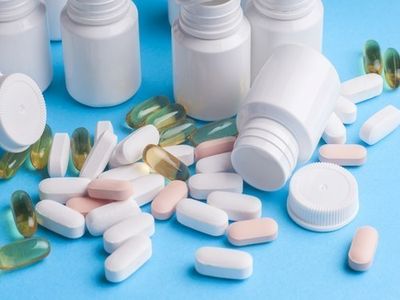
For example: As a result of rush hour, a recovering alcoholic could make a decision one mid-day to leave the freeway and travel on side roads. This will certainly result in the creation of a risky scenario when he realizes he is accidentally driving by his old favored bar. If this person is able to use effective coping techniques, such as sidetracking himself from his yearnings by switching on his preferred music, then he will prevent the regression danger (PATH 1) and increase his efficacy for future abstaining. If, nonetheless, he does not have coping mechanisms- for instance, he could start ruminating on his cravings (PATH 2)- then his efficiency for abstaining will certainly reduce, his expectations of favorable end results will boost, as well as he may experience a lapse- an isolated return to material intoxication. Doing results in just what Marlatt refers to as the Abstinence Infraction Impact, identified by guilt for having actually gotten drunk and low efficiency for future abstinence in similar tempting scenarios. This is an unsafe pathway, Marlatt proposes, to full-blown regression.
Dual Diagnosis Explained
When a patient is diagnosed with both a substance abuse condition and a psychological health and wellness concern, then it is labelled a Twin Medical diagnosis. Common mental health disorders that have the tendency to happen alongside dependency include:
- Anxiety disorders.
- Modest to serious anxiety.
- Character conditions.
- Mood disorders.
- Schizophrenia.
As they become more as well as extra frustrating, the individual may attempt to “treat” those signs by utilizing various medications. Conversely, a person dealing with an eating condition may try to further their weight loss efforts by abusing energizer medicines like cocaine or crystal meth.
In various other situations, the medicine addiction comes first and because of chronic substance abuse, psychological health issues could create later as a result of that drug use changes mind function gradually.
Sober Living Home
Sober living residences are group residences for those recouping from a dependency. The majority of these residences are independently owned, although some team houses are owned by organizations and could also be possessed by charity organizations. Houses are normally located in peaceful areas to help ensure a peaceful atmosphere for individuals in very early recuperation.
These types of homes are different from rehabilitation centers; rehabilitation centers typically supply a more extensive healing experience and provide citizens less flexibility. Homeowners may likewise be subject to routine medicine testing to show recurring sobriety.
